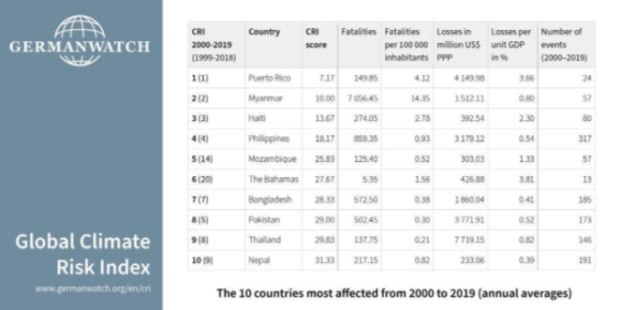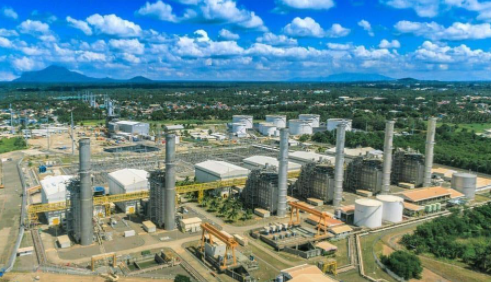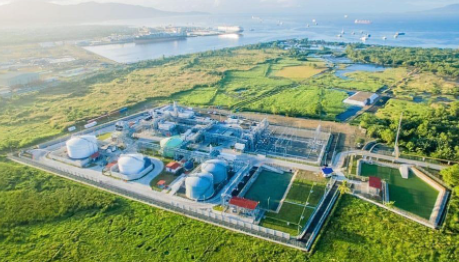Natural gas, a vital transitory agent in decarbonizing the Philippines
According to the 2019 Climate Analytic, which is executed by the UN Environment and Asian Development Bank, the Philippines is one of the world’s most vulnerable countries to the impact of climate change.
Citizens have been made vulnerable due to the continuously devastating effects of climate change on their homes and communities. The Germanwatch Global Climate Risk Index 2021 ranked the Philippines as the fourth most vulnerable region to climate change. This placement was based on their annual averages of the effect of harsh weather on factors such as human fatalities and direct economic losses from 2000 to 2019.
The position of the Philippines has stayed stagnant from the rankings of 1999-2018, although this does not mean that no effort has been put towards solving this issue.
As recently as 2018, the Philippines reached its third year of ranking first in the World Energy Council’s 2017 World Energy Trilemma Index (WETI). Among 125 countries, the Philippines was hailed as the foremost country promoting energy environmental sustainability. The Trilemma that forms the basis of deliberation for the World Energy Council are a country’s energy security, energy equity and environment sustainability.
The UN 2019 Climate Analytic also illustrated that between 2000 and 2017, the Philippines has been able to substantially reduce its energy intensity by 7%. Energy intensity refers to the amount of energy required to execute an activity or produce a product. The study, however, continues to explain that this number is overshadowed by the extensive increase in the carbon intensity of the energy sector and increase of coal in the supply of electricity, rising from 37% in 2000 to 48% in 2016.
So far, the country has been heavily dependent on imported oil for its transportation and coal for its power. According to the UN 2019 Climate Analytic, energy independence is a crucial objective of the Philippines’ government, and the Philippines has the capability to transition into 100% renewable energy use to decarbonize the country.
Decarbonization refers to the process of reducing the carbon intensity of operations. It requires an increase of low-carbon power generation and a gradual reduction of fossil fuel use, which eventually leads to 100% renewable energy use for a more sustainable and eco-friendly future.
The transition from fossil fuel to 100% renewable energy is a daunting undertaking, but with the use of cleaner fuels like natural gas, there is now a clear pathway towards decarbonizing the country. Natural gas is our first step towards a more sustainable future in regards to renewable energy, assisting in the transition towards a greener Philippines.
Natural gas is a clean energy source, emitting up to 60% less carbon dioxide than coal. In 2020, First Gen’s natural gas power plants prevented 6.9 million tons of carbon dioxide from being emitted into the atmosphere. This is equivalent to removing 1.5 million vehicles from the street. Unlike other fossil fuels, natural gas does not produce any ash, sludge, or other harmful by-products, making this the cleaner alternative for both our health and the environment.
Natural gas plants are also reliable because they operate at high levels of dependability, and are flexible, which means they can react quickly to changes in power demand. Natural gas plants can take as fast as 15 minutes to provide power, making it flexible enough to adjust to shifting power demand.
This is crucial in supporting power sources like Solar and Wind that, while renewable and are becoming increasingly affordable, are currently intermittent. When there is not enough sunlight or sufficient wind speed, these plants will be unable to provide electricity and would need another source to complement the lost energy supply. Because it is flexible, natural gas can provide such a complement.
The combined use of natural gas and renewable energy is the beginning of the country’s journey into decarbonization and a greener future. Before renewable energy becomes the country’s main energy source, natural gas may be relied on as the cleaner and safer alternative to coal.
Technology will continue to drive down the expense and improve the efficiency of renewable sources to the point where we can eliminate the use of fossil fuels altogether. Until then, natural gas provides the cleanest and clearest path towards that 100% renewable energy future.
INQUIRER.net BrandRoom/GC


